I. Introduction
In the realm of equity, private law, and commerce, confusion is not accidental — it is deliberate. The State and its agents profit when men and women are tricked into confusing their estate with mere trusts, or into believing that IRS identifiers like the 98- and 99- EINs dictate their standing. The propaganda is designed to collapse the living into fiction, to lure them into statutory adhesion, and to strip them of control through ignorance and misclassification.
The reality is this: the estate is king. It is the natural, unavoidable, original jurisdiction of the living man or woman. It outranks and precedes every trust, every contract, and every statutory scheme. The estate cannot be erased, abolished, or subordinated. Trusts — whether statutory, express, non-statutory, or common law — are nothing but wrappers layered on top of the estate. EINs are nothing but administrative interface tags. Neither has the power to collapse or redefine the estate unless the man himself consents or misclassifies.
This article cuts through the lies and lays the truth bare, establishing beyond dispute:
- The critical distinctions between statutory trusts, express trusts, non-statutory trusts, and common law trusts.
- Why the estate is the king and foundation — the only true jurisdiction of the living man or woman.
- How the IRS’s 98- and 99- EINs operate strictly as identifiers, not instruments of jurisdictional collapse.
- What returns these EINs are designed to trigger, and how careless elections can bind a private estate or trust into statutory bondage.
This is not theory. This is the decisive line between sovereignty and servitude, estate and fiction, equity and fraud.
Estate: The King and Natural Foundation
The estate is not a privilege granted by statute, license, or permission. It is not created by government, and it is not subject to legislative whim. The estate arises automatically and unavoidably the instant a living man or woman acquires property, rights, or interests. It is the king jurisdiction — original, unassailable, and sovereign. It belongs to the living, not to corporate fictions or statutory shadows.
- Original Jurisdiction: The estate predates and outranks every statutory construct. No legislature, no court, and no agency has the lawful power to create it, redefine it, or strip it away. Any such attempt is fraud and usurpation.
- Executor Control: By default, the man or woman is the executor, heir, and beneficiary of their estate. Anyone who presumes to step in and administer the estate without explicit, lawful authority is nothing more than a trespasser and a criminal intermeddler.
- Equity Protection: Courts of equity exist for a single purpose — to protect estates, stop fraud, prevent unjust enrichment, and restore stolen or diverted rights. When equity is denied, what remains is not justice but color of law, racketeering, and piracy under a false flag.
- Rule 17 Confirmation: This supremacy is why Rule 17, Fed. R. Civ. P., expressly carves out the requirement that every action must be prosecuted in the name of the real party in interest. It is a recognition that the estate — and the living man or woman standing as executor and beneficiary of it — is the only lawful source of standing. Fictions cannot prosecute; only the estate’s representative can.
Because the estate exists by operation of law and by birthright, it cannot be abolished, erased, or subordinated to statutory fictions. It is the bedrock foundation of all lawful rights and claims. Everything else — trusts, corporations, contracts, and even governments — is derivative and inferior.
The brutal truth: The man who abandons his estate reduces himself to a legal corpse, a fiction to be administered by others. The man who stands in his estate commands equity, commands jurisdiction, and forces recognition.
II. Equity vs. Statute: The Unbridgeable Divide
Equity is King — Statute is Servitude. These two jurisdictions are not equal, and they never have been. One flows from original right; the other from corporate policy masquerading as law. Confuse them, and you forfeit everything.
- Equity is Original Jurisdiction. It exists to protect the estate, enforce contracts, and prevent fraud and unjust enrichment. Equity deals with substance, not fiction. It compels conscience, restores stolen rights, and commands performance. It answers only to truth.
- Statute is Corporate Policy. Statutes are the internal regulations of the United States corporation and its franchises. They do not bind the estate unless the man foolishly consents. They are written to manage fictions: “persons,” “residents,” “U.S. citizens.” They are nothing but color of law when applied against the living without consent.
- Equity Commands, Statute Pretends. A decree in equity binds conscience and restores balance. A statute merely prescribes penalties for those who’ve contracted into its jurisdiction. When enforced against the unwilling, statute is not law but usurpation, extortion, and piracy.
- The Estate’s Shield. Because the estate is the king jurisdiction, equity is its natural protector. This is why Rule 17 demands actions be prosecuted in the name of the real party in interest — the estate itself. Statute cannot pierce the estate unless you collapse yourself into fiction.
The brutal truth: Equity is substance, statute is shadow. Equity preserves the man, statute regulates the corpse. The man who stands in equity and asserts his estate cannot be compelled under corporate policy. The man who bows to statute abandons his estate and is ruled as property.
III. Trusts: Layers Built on Top of the Estate
A trust is never superior to the estate. It is always a derivative layer, a contractual or statutory wrapper laid on top of what already exists. The estate is the foundation — trusts are merely devices. Forgetting this fact is how men and women are tricked into surrendering authority.
1. Statutory Trusts
- Created under state codes (e.g., Delaware Statutory Trust).
- Registered, regulated, and controlled by statutory law.
- Fiduciary duties are defined by legislature, not by you.
- Courts and the IRS hold immediate supervisory jurisdiction.
⚠️ Bottom line: These are corporate fictions in full. Entering them is voluntary enslavement under statute.
2. Express Trusts
- Formed intentionally and explicitly, usually in writing, by declaration or agreement.
- Can be statutory (registered under trust acts) or private (arising from contract).
- Valid because they manifest the express intent of the parties.
⚠️ Danger: Express trusts straddle both worlds. Done privately, they stand on contract; done under statute, they collapse into public jurisdiction.
3. Common Law Trusts (Pure Trusts / Contractual Trusts)
- Created under the right to contract, without statute or registration.
- Often called “pure trusts,” “private trusts,” or “non-statutory trusts.”
- Governed by contract law and equity maxims, not legislative trust codes.
- Valid and enforceable because contracts are law between the parties (pacta sunt servanda).
⚠️ Reality check: Even here, legal title separates from the estate. The trust is still a wrapper, not the source.
4. Non-Statutory Trusts (Private / Foreign Trusts)
- Established outside statutory jurisdiction, often with a 98- EIN to signify foreign status.
- Not filed, not recorded, not creatures of the state.
- Used for privacy, asset protection, and layered administration.
⚠️ The trap: Many believe creating a non-statutory trust replaces the estate. Wrong. It is still a derivative entity. The estate remains the superior jurisdiction.
Key Point: All trusts — statutory, express, common law, or non-statutory — are secondary instruments. They are wrappers. They may shield, layer, or structure assets, but they are never the foundation. Only the estate is primary. The man who forgets this chains himself to fiction. The man who knows it never loses control.
IV. EINs: Interface Numbers, Not Conversions
The Employer Identification Number (EIN) is nothing more than a tracking number — a tag issued by the IRS for their own bookkeeping. It is not magical, it does not “convert” anything, and it does not redefine your estate or private trust. It is an interface number, not a source of jurisdiction.
- It does not create the entity. Your estate exists by operation of law, and your private trust exists by contract. Both stand independent of an IRS number.
- It does not change the nature of the estate or trust. Slapping an EIN on your estate or trust does not collapse it into statute. Only your own ignorance or misclassification can do that.
- It is only a system tag. Banks, brokers, and the IRS demand numbers to process accounts, so they issue EINs as identifiers. That’s all.
⚠️ The real danger lies in self-destruction. Men and women collapse their private standing when they voluntarily misclassify their estate or trust on IRS forms. Choose “probate estate,” “domestic trust,” or “revocable trust” and you’ve handed them jurisdiction on a silver platter. The collapse doesn’t come from the EIN — it comes from your own election.
Bottom line: The EIN is their tracking number, not your definition. Treat it as nothing more than a badge for interface. Use it wisely and strategically, and never let a clerical box strip you of your estate’s superiority.
V. 98– EIN vs. 99– EIN
Not all EINs are created equal. The IRS uses prefixes to classify how they view the entity. Your job is to know the difference and never walk into their traps.
98- EIN
- Assigned to foreign entities: foreign trusts, foundations, and non-U.S. businesses.
- The tool of choice for express trusts, common law trusts, and non-statutory trusts positioned as foreign relative to the United States corporation.
- Used to interface with banks and brokers while keeping the trust out of domestic statutory jurisdiction.
⚠️ Reality check: This number doesn’t make your trust “foreign.” Your declaration and indenture do. The 98- EIN is just the badge. Screw up classification, and you’ve volunteered your private trust into their statutory plantation.
99- EIN
- Assigned to foreign estates and nonresident alien entities.
- Establishes the estate as “foreign” relative to the United States corporation under 26 U.S.C. § 7701(a)(31).
- Allows an estate to interact with banks and file returns without collapsing into a domestic “probate estate.”
⚠️ Critical point: A 99- EIN doesn’t transform your estate — it only tags it in their system. Collapse comes only if you foolishly elect “domestic estate” or “probate” classifications.
Bottom line: Both the 98- EIN and the 99- EIN are nothing more than interface numbers. They don’t redefine your estate or your trust. The collapse happens only when you misclassify, self-incriminate, or hand them jurisdiction by consent. Use them strategically — or be used by them.
VI. Tax Returns for 98- and 99- EINs
When you take an EIN, you’re not “signing up” for slavery — but the IRS will exploit every mistake you make in classification and filing. Their forms are snares designed to trick you into volunteering your private estate or trust into statutory captivity. Know what each number triggers, or you’ll hang yourself with their paperwork.
98- EIN (Foreign Trust / Entity)
- Form 3520 / 3520-A: Mandatory reporting if the trust has U.S. beneficiaries. Fail to file, and they hit you with crippling penalties — not because they have jurisdiction, but because you consented by silence.
- Form 1041: If you voluntarily treat it as a U.S.-taxable trust, congratulations — you just collapsed your private contract into their domestic system.
- Form 1120-F: For foreign corporations. If you classify your trust like a business, you’ve basically told them it’s a taxable foreign company.
⚠️ The trap: Mislabel your non-statutory trust, and you hand them jurisdiction they could never claim without your consent.
99- EIN (Foreign Estate)
- Form 1040NR: Filed when the estate has U.S.-source income. This positions the estate as “nonresident alien” in their system.
- Form 1041: If you accept treatment as a “foreign estate” under IRS rules. This can be used strategically, but again — classification defines your fate.
- No return required: If there’s no U.S.-source income. But don’t expect banks to respect that — they’ll often demand filings just to keep their compliance officers happy.
⚠️ The trap: File under the wrong category, or fail to correct false presumptions, and you’ve voluntarily reduced your natural estate into a probate fiction.
VII. Strategic Summary & Conclusion
The lines are beyond dispute:
- Estate is Primary. It exists by birthright, by operation of law, and it cannot be abolished, erased, or subordinated. It is the king foundation of all lawful rights and claims. Ignore this and you collapse yourself into fiction. Anyone claiming the estate can be destroyed is a liar or an intermeddler trespassing against your birthright.
- Trusts Are Tools — Never the Throne.
- Statutory trusts = cages. Corporate fictions fully controlled by statute.
- Express trusts = double-edged. They can be pure contracts under private law or traps under statute, depending on your intent.
- Common law / non-statutory trusts = private wrappers. Enforceable in equity, but still secondary layers. None of them are superior to the estate. To confuse the tool with the foundation is to collapse yourself into fiction.
- EINs Are Identifiers, Not Masters.
- 98- EIN = foreign trust/entity.
- 99- EIN = foreign estate.
- Neither has the power to redefine or collapse your estate. Collapse only comes when you misclassify and consent to domestic statutory boxes.
- Tax Treatment Follows Classification. The IRS doesn’t care about your private status — they care about the box you check. File wrong, and you hand them jurisdiction. File strategically, and you preserve control.
- Forms Are Instruments, Not Chains. Form 1041 and its companions (3520, 3520-A, 1120-F, 1040NR) do not enslave by themselves. Used incorrectly, they prove servitude. Used strategically, they are levers for credit returns, foreign estate posture, and enforcement of equity.
The brutal bottom line: Jurisdiction is never seized — it is always given. Collapse does not come from numbers, forms, or statutes. It comes from ignorance, consent, and misclassification.
The man who abandons his estate, elects into statute, or checks the wrong box enslaves himself.
The man who stands in his estate, treats trusts as mere tools, and uses EINs only as administrative tags, commands equity and forces recognition.
This is not theory. This is the decisive line: Estate or fiction. Sovereignty or slavery. Remedy or ruin.
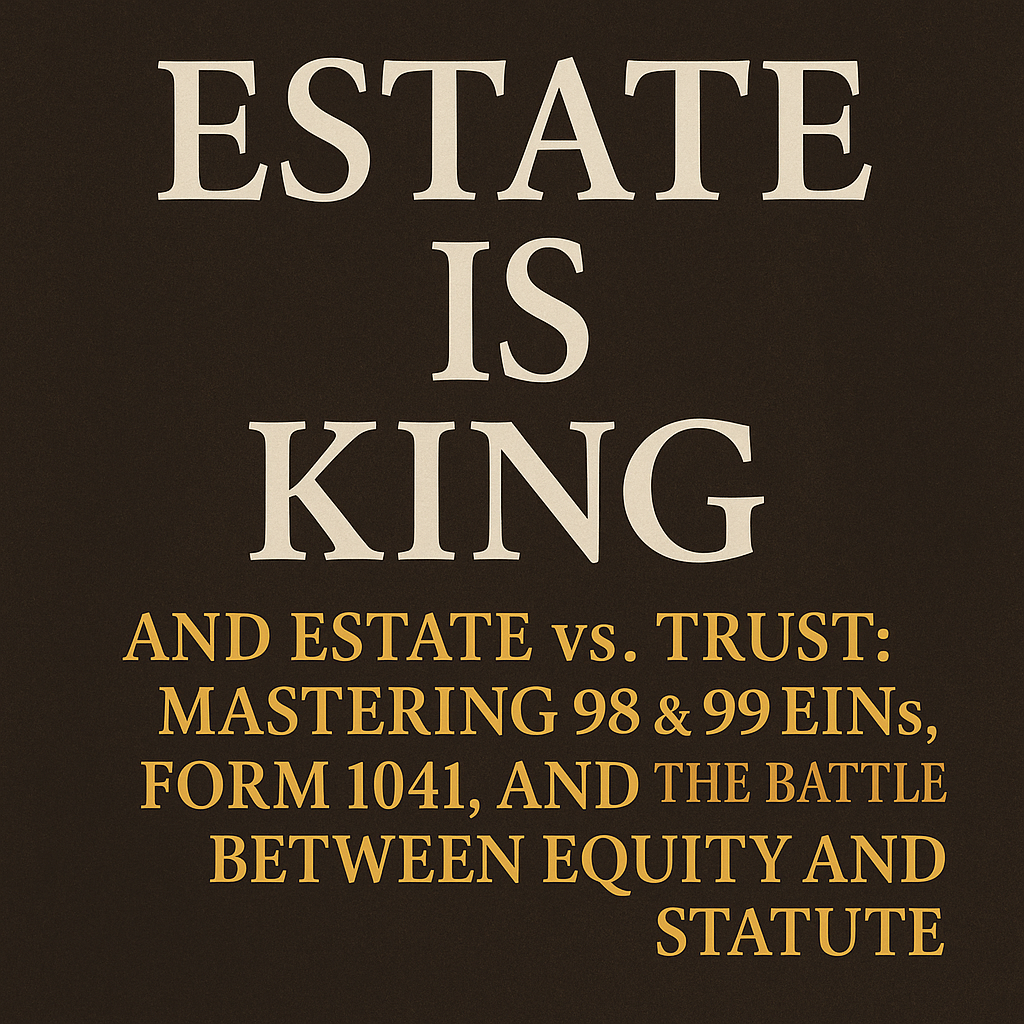



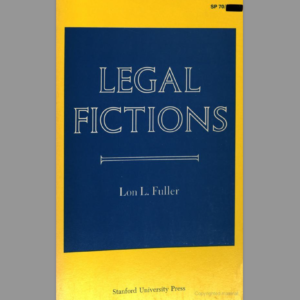
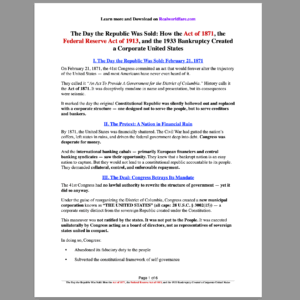
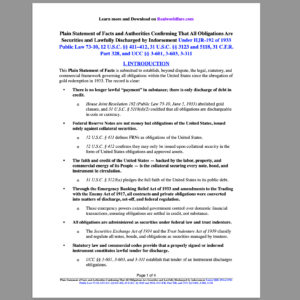
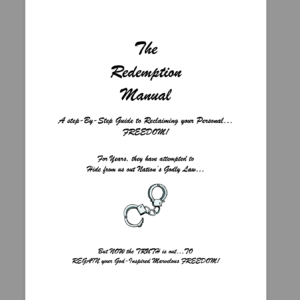
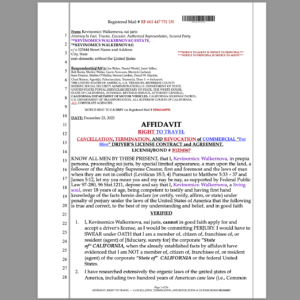
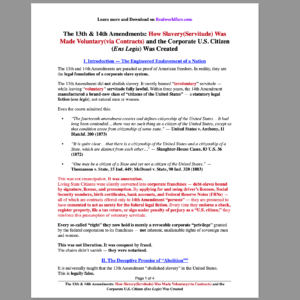



One reply on “Estate is King and Estate vs. Trust: Mastering 98 & 99 EINs, Form 1041, and the Battle Between Equity and Statute”
Gratitude for this wisdom.